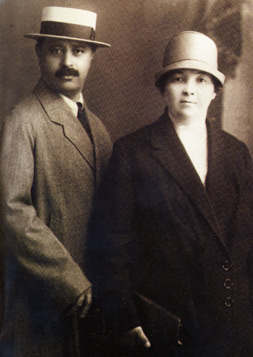Leyli and Majnun was first performed on 12 January 1908 (25 January in the modern calendar). Ninety-five years later the opera remains a popular fixture in the repertoire of the Azerbaijan State Academic Opera and Ballet Theatre.
Birth of an Opera
Shusha, 1898: a 13-year-old boy watches a dramatization of the story of Majnun at Leyli’s Tombstone. He is astonished at the performance of the amateur actors. That boy was Uzeyir Hajibayov. Remembering the occasion, the great composer wrote: "That performance affected me so much that when I came to Baku years later, I decided to write something like that." So, Leyli and Majnun was born in the heart of 13-year-old Uzeyir in 1898.
The opera’s first director was Huseyn Arablinski and its first conductor was Abdurahimbey Hagverdiyev, a famous Azerbaijani writer. All the parts were played by men, as at that time women were not allowed to perform on stage.

